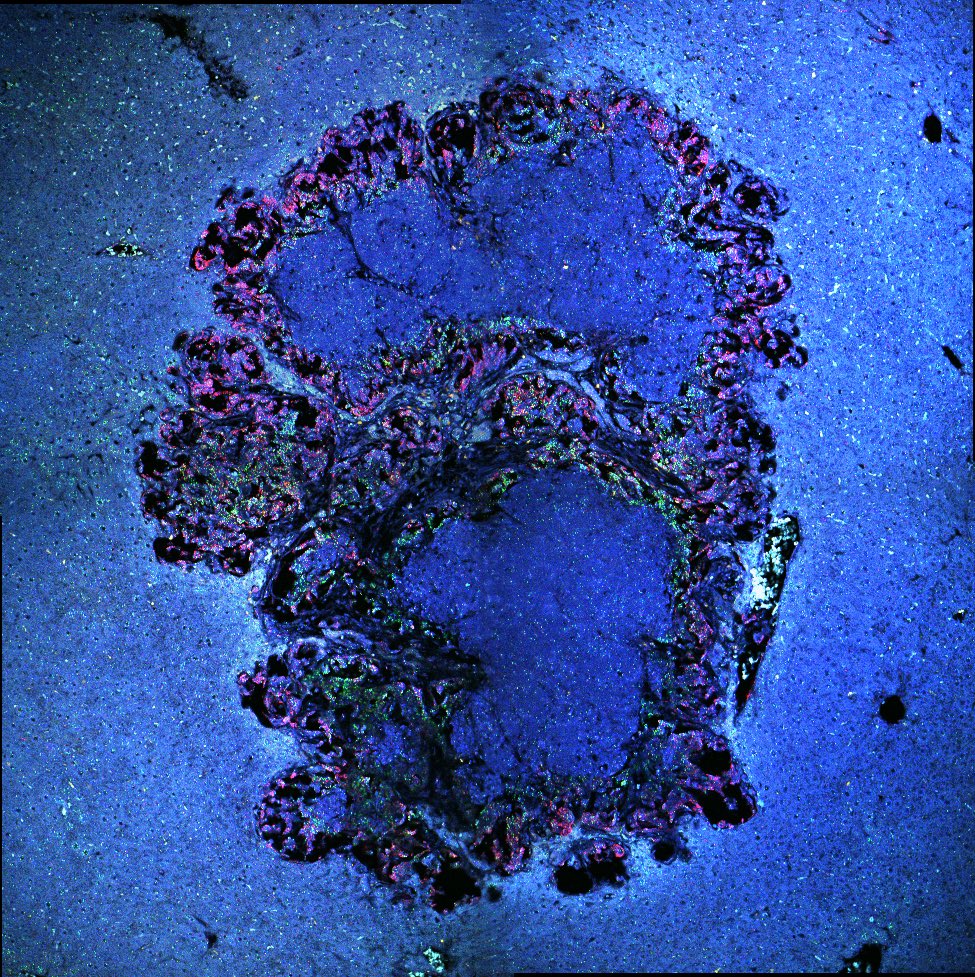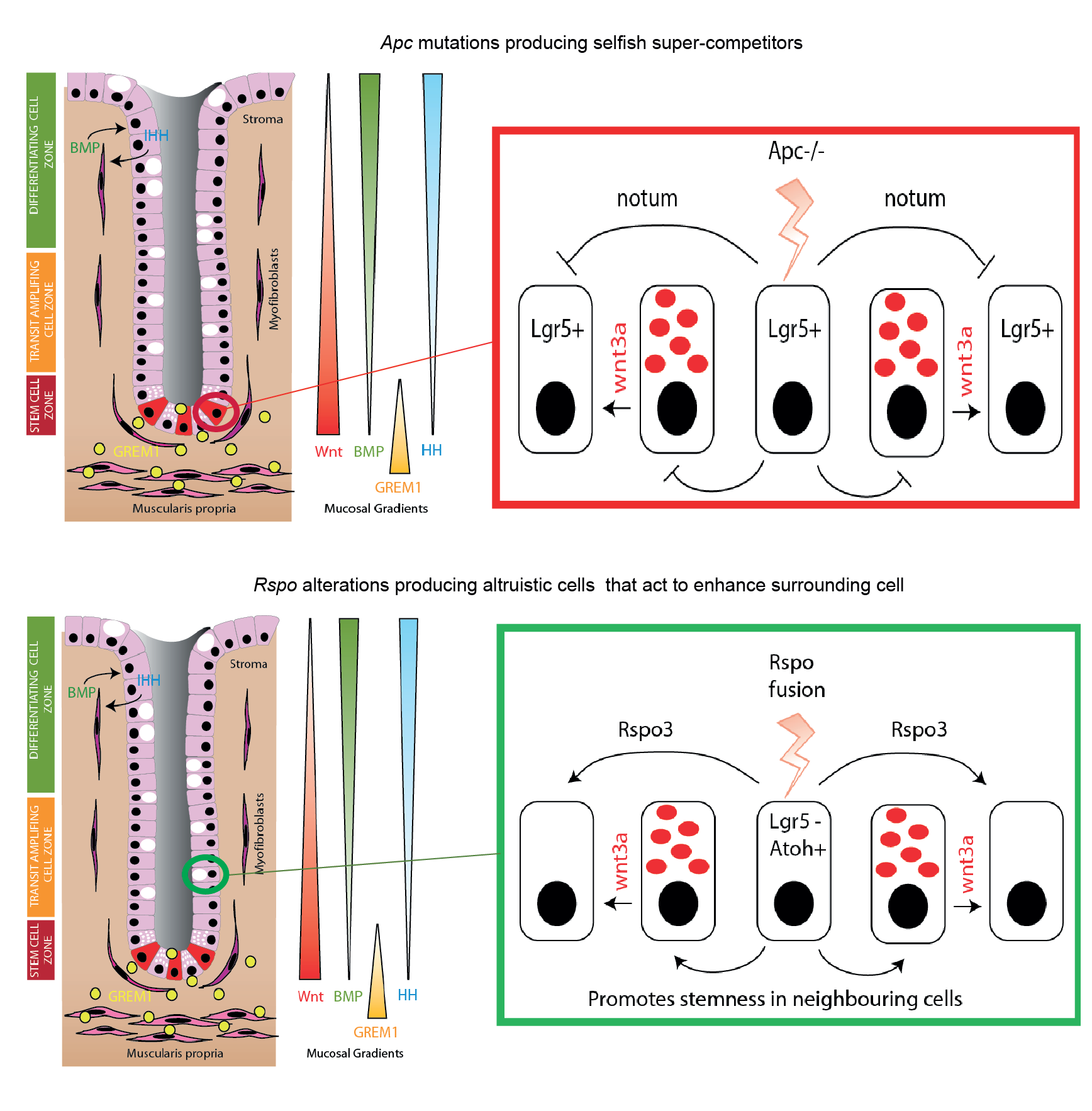Nadia Nasreddin, Nuray Gunduz, Hayley L Benoue-Davis, Amelia Ligenza, Gabriel N Valbuena, Ester Gil Vasquez, Lai Mun Wang, Alistair Easton, Maurice B Loughrey, Kane Smith, Dustin J Flanagan, Salpie Nowinski, Ibrahim Al-Bakir, Sulochana Omwenga, Kathryn Gilroy, Rachel A Ridgway, Andrew Campbell, Mark Hughes, Colin Nixon, Silvia Martinelli, Tim S Maughan, Trevor A Graham, Simon J Leedham, Owen J Sansom
Aberrant WNT pathway activation is a hallmark of colorectal cancer. The principal mechanism of WNT hyperactivation is mutation of key WNT-genes, i.e. loss-of-function mutations in APC and RNF43 and gain-of-function mutations in CTNNB1 and RSPO. Recent studies have shown that Apc mutations in Lgr5-positive cells give rise to super-competitor cells, whereby mutant cells hold an endogenous fitness advantage provided by the intrinsic and constitutive WNT activation, coupled with suppression of neighbouring wild-type cells’ stemness and promotion of their differentiation though secretion of Notum. This allows Apc-mutant cells to “fix” and outcompete wild-type cells. However, the dynamics between Rspo-mutant, Rnf43-mutant and Ctnnb1-mutant cells, and their respective neighbours is yet to be described.
In this study, the cell dynamics between Rspo3-mutant cells and their wild-type neighbours was investigated. Contrary to the profound NOTUM expression seen in APC-mutant lesions, no expression of NOTUM was found in the RSPO3-mutant lesions, in both human and mouse samples, suggesting that RSPO3-mutant cells do not suppress their neighbouring cells’ stemness. Furthermore, the assessment of Apc-mutant and Rspo3-overexpressing murine models showed a dramatic increase in Paneth cells (PCs) in the Rspo3-mutant models. Investigation of this in a case-control, multiple timepoint mouse experiment revealed that Rspo3 expression caused an expansion of PCs, with overexpression of Rspo3 in Lgr5-negative cells favouring skewing of secretory cell fate towards PCs. The expansion of PCs is believed to be mediated through Lgr4-positive cells. Notably, Apc mutation in Atoh1-positive cells did not have an impact on secretory cells, highlighting that the Paneth cell hyperplasia seen is specific to Rspo3 overexpression. Lastly, cell competition experiments showed that whilst Apc-mutant cells colonise the crypt overtime, outcompeting wild-type cells, Rspo3-mutant cells, allow for the co-expansion of both Rspo3-positive and Rspo3-negative Lgr5-positive clones. Based on these observations an Apc selfish versus Rspo altruistic cell dynamics model is proposed.

